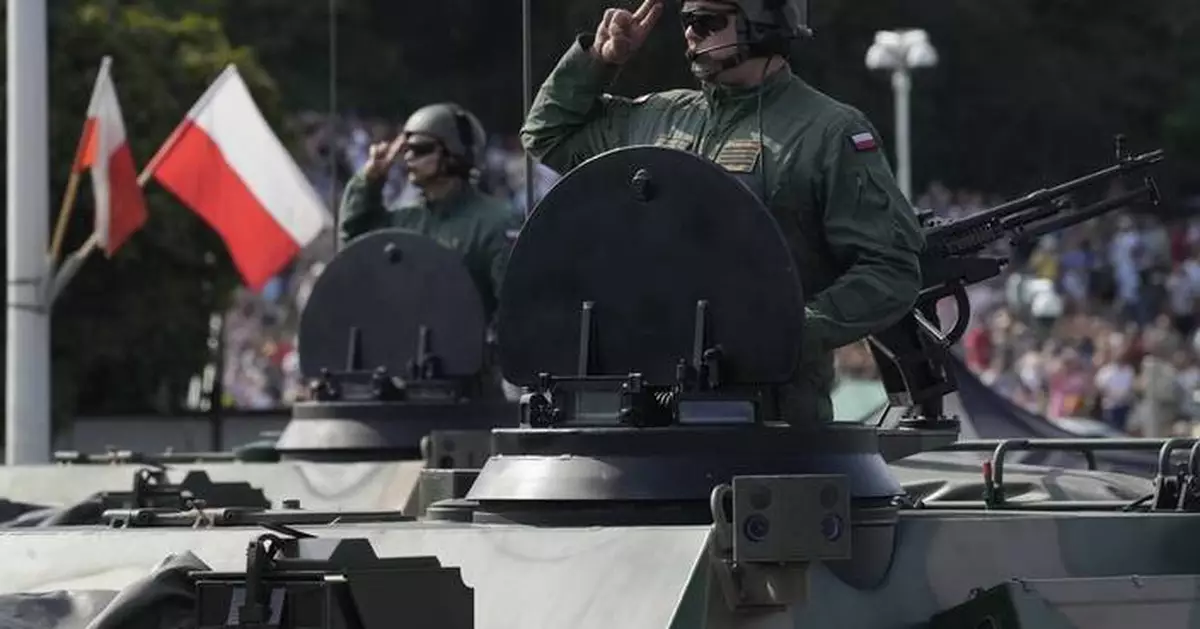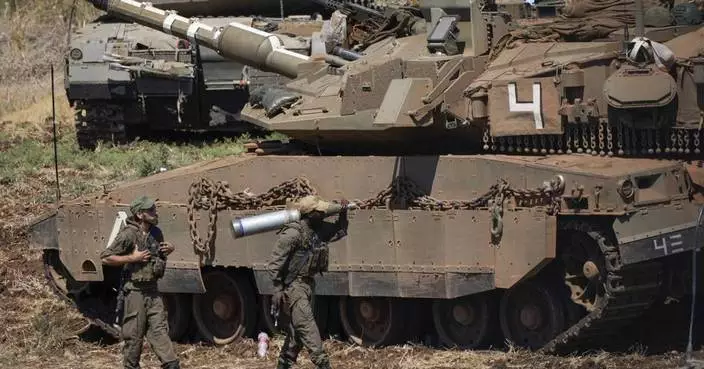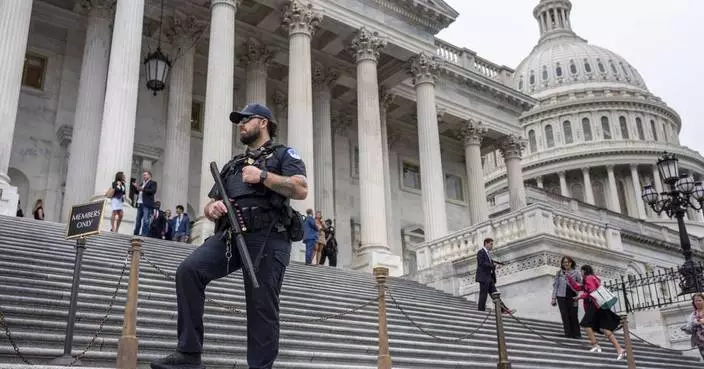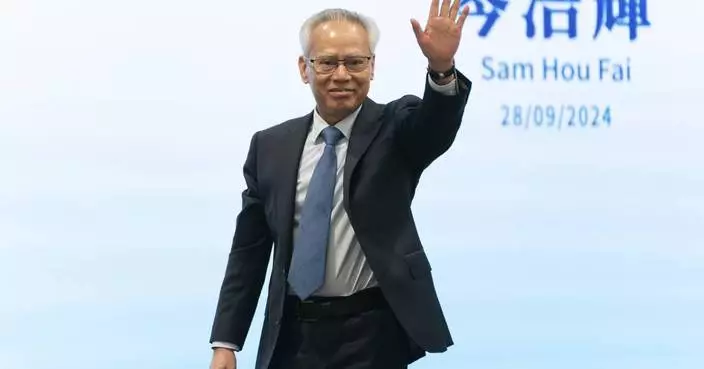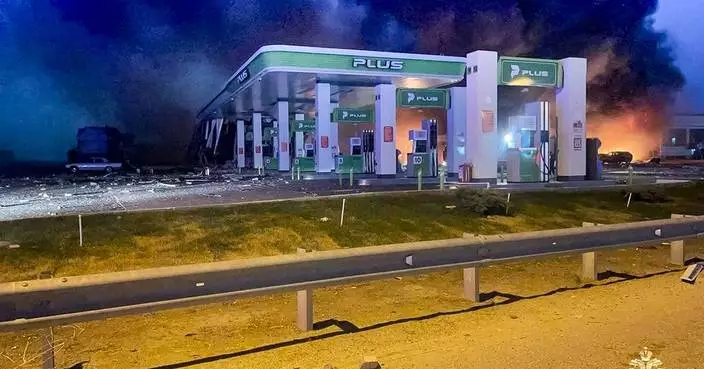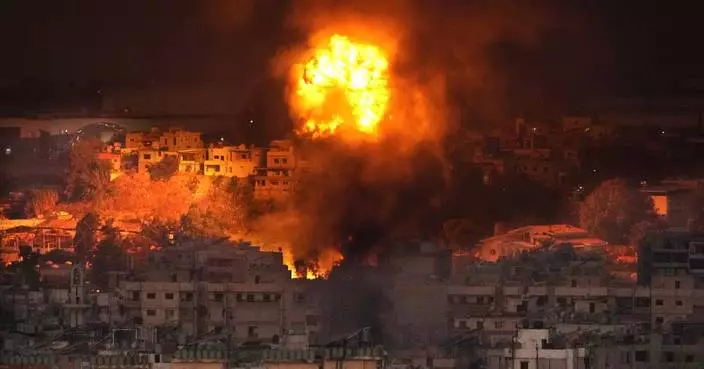HELSINKI (AP) — NATO members Estonia, Latvia, Lithuania and Poland will seek European Union funding to build a network of bunkers, barriers, distribution lines and military warehouses along their borders with Russia and Belarus, Estonia’s officials said Saturday.
The three Baltic countries initially announced the plan for a “Baltic Defense Line” in January. In May, Poland announced a similar project called the “Eastern Shield” with a purpose to strengthen its borders with the Russian exclave of Kaliningrad and Belarus.
“The need for a (Baltic) defense line stems from the security situation and supports NATO’s new forward defense concept,” Estonian Defense Minister Hanno Pevkur said in a statement, adding that “it is extremely important to coordinate our activities with Poland.”
“At the same time, it strengthens the security of the European Union and the military defense of its borders, which is why we clearly see that the EU could also financially support the project,” he said.
The defense ministers of the four European countries located on NATO's eastern flank met in the southeastern Latvian city of Daugavpils on Friday to discuss the project's funding.
They didn’t specify how much financial aid Estonia, Latvia, Lithuania and Poland would be seeking for the project from Brussels but noted in a joint statement that “Russia’s war against Ukraine has shown that creating physical obstacles on an open ground with no natural defensive cover is paramount even in technologically advanced warfare.”
The ministers said that external threats at the Baltic-Polish frontier are increasingly growing and ramping up fortifications along the border with Russia and Belarus "remains a high-priority contributing to our pledge to defend every inch of (NATO) territory.”
In Estonia, the smallest of the four countries with a population 1.3 million, the establishment of the border defense line is planned in three stages starting in 2025, the Defense Ministry said.
Officials in Tallinn said earlier this year that Estonia is to construct up to 600 bunkers along its 333-kilometer (207-mile) border with Russia in the coming years at an estimated cost of 60 million euros ($67 million). The project is likely, however, to face difficulties and delays because the bunkers will have to be built on private land.
The Baltic-Polish defense line excludes coastal defenses on the Baltic Sea that is shared by the four countries. No mines, barbed wire, anti-tank weapons or other such devices would be deployed in peacetime along the border fortifications, according to Estonia’s defense officials.
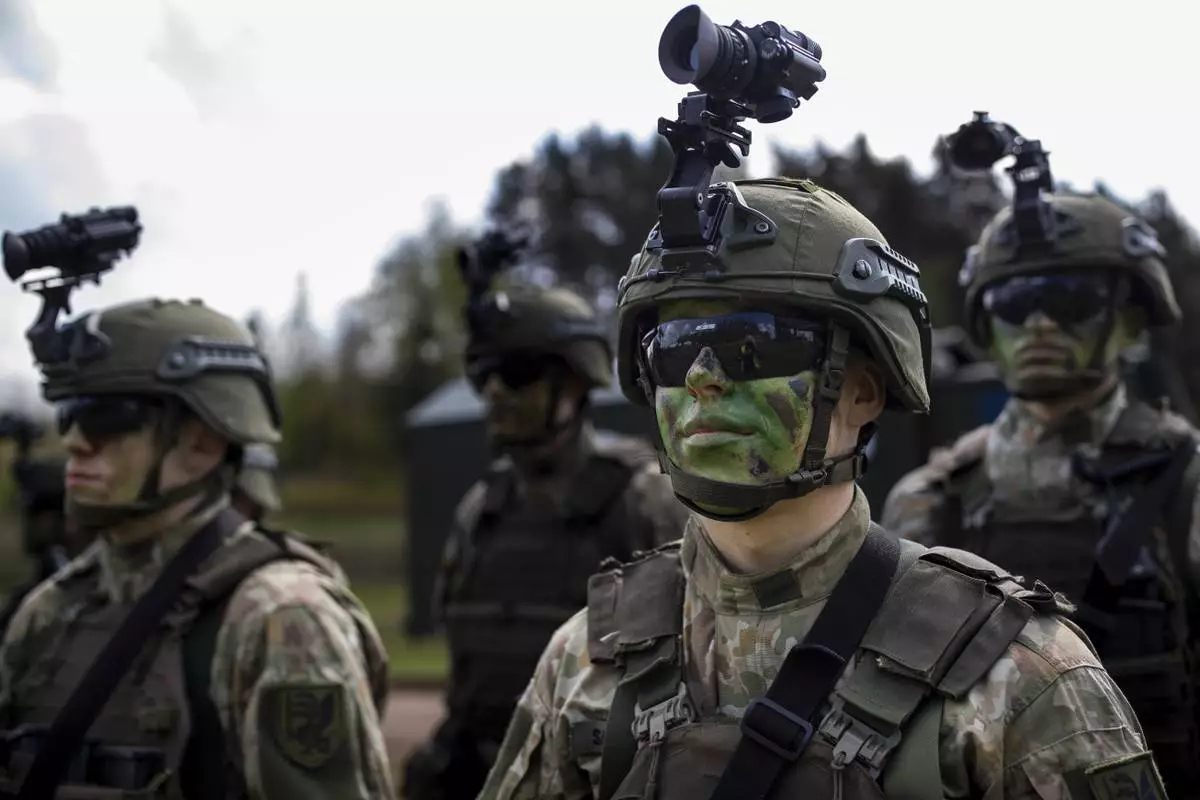
FILE - Lithuanian Army soldiers take part in a Lithuanian-Polish Brave Griffin 24/II military exercise near the Suwalki Gap near the Polish border at the Dirmiskes village, in Lithuania on Friday, April 26, 2024. (AP Photo/Mindaugas Kulbis, File)
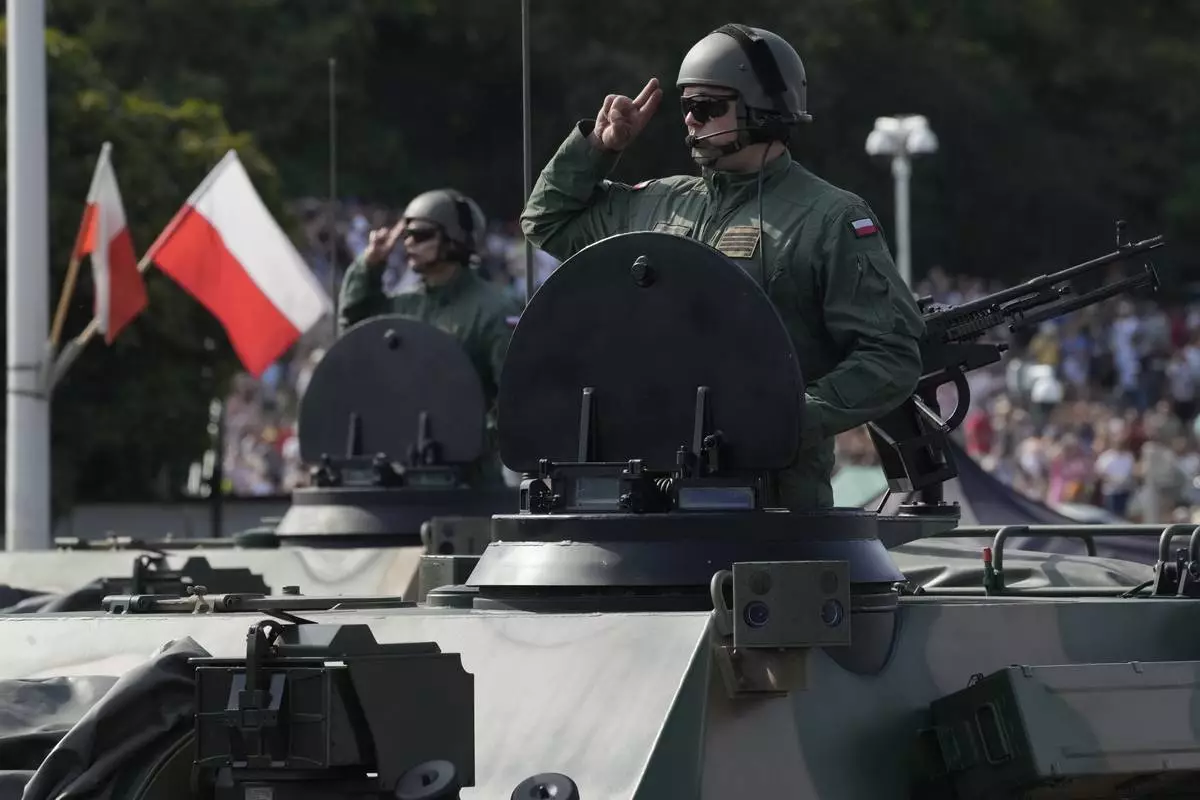
FILE - Poland displays its growing and modernising military during annual observances on Poland's armed forces holiday in Warsaw, Poland, on Thursday, Aug. 15, 2024. (AP Photo/Czarek Sokolowski, File)
Smoke rose from Beirut’s southern suburbs Saturday morning after the area was pummeled overnight by heavy airstrikes that Israel said killed multiple Hezbollah commanders, including leader Hassan Nasrallah.
The Lebanese militant group confirmed the death of its longtime leader, whose killing could dramatically reshape conflicts across the Middle East.
Attacks on Hezbollah targets by fighter jets continued into the early hours Saturday after the army said it told residents to evacuate three buildings it was targeting.
Hours before the strikes, Prime Minister Benjamin Netanyahu addressed the United Nations, vowing that Israel’s campaign against Hezbollah would continue — further dimming hopes for an internationally backed cease-fire. Netanyahu abruptly cut his United States visit short and returned to Israel.
More than 720 people have been killed in Lebanon since the conflict escalated Monday, according to Lebanon’s Health Ministry.
The United Nations says the number of those displaced by the conflict from southern Lebanon has more than doubled, with more than 211,000 people now displaced. At least 20 primary healthcare centers have shut down in hard-hit areas of Lebanon, the U.N. Office for Coordination of Humanitarian Affairs said.
Hezbollah began firing rockets into northern Israel in support of Hamas after it stormed into Israel, sparking the Israel-Hamas war. Top Israeli officials have threatened to repeat the destruction of Gaza in Lebanon if the Hezbollah fire continues, raising fears that Israel’s actions in Gaza since Oct. 7 would be repeated in Lebanon.
Here’s the latest:
BAABDA, Lebanon — Shots rang out in Hezbollah’s stronghold of southern Beirut and other areas of Lebanon as people fired in the air to mourn the death of the only leader many Lebanese have known for the powerful militant group.
Angry supporters shouted, decrying his death. One woman holding her baby in the western city of Baabda, shouted: “Wish it was our kids, not you, Sayyid,” using an honorific title for Nasrallah.
The Gaza-based Palestinian militant group Hamas issued condolences to its ally, Hezbollah. It said Nasrallah’s death would not stop the two Iran-backed militant groups’ fight against Israel.
Hamas said in a statement that “assassinations will only increase the resistance in Lebanon and Palestine in determination and resolve.”
BEIRUT — Hezbollah has confirmed the death of its leader Hassan Nasrallah and vowed to continue its “holy war” against Israel and "in support of Palestine.”
The group said in a statement that Nasrallah “has joined his fellow martyrs.”
Nasrallah led the militant group for more than three decades. His death could dramatically reshape conflicts across the Middle East.
TEL AVIV – Israel’s military says it is continuing to strike sites belonging to Hezbollah in Lebanon, some under residential buildings, after the massive attack that targeted the group’s leader Hassan Nasrallah.
The Israeli army says it hit more than 140 targets since Friday night, including a storage site for anti-ship missiles beneath civilian apartment buildings in Beirut’s southern suburbs.
Israeli Air Force fighter jets struck the weapons stores under six different buildings as, working to “degrade and dismantle” Hezbollah’s infrastructure and capabilities, the military said.
It is unclear how many people have been killed in the Israeli strikes on densely populated urban areas.
The United Nations says fighting has displaced more than 200,000 Lebanese in the past week.
TEHRAN — Iranian state television says a flight from Tehran bound for Lebanon was turned away from Beirut airport on Saturday.
It reported that the decision came following a warning by Israel that the airport could be targeted if the passenger plane landed.
Israel’s military says it will not allow the civilian airport to be used for military purposes and that pilots are patrolling the skies over the airport for weapons smuggling.
Sky News reported that Lebanon’s transport minister intervened to stop the plane from landing.
TEHRAN – Iran’s supreme leader has urged all Muslims to stand by Hezbollah against Israel, but has not indicated how Tehran will respond to the reported killing of the group‘s leader Hassan Nasrallah.
Iran is the main backer of Hezbollah and other anti-Israeli militant groups in the region.
In his first comments since Israel claimed to have killed Nasrallah, Supreme Leader Ayatollah Ali Khamenei said, “it is the duty of all Muslims to stand by the people of Lebanon and Hezbollah” against the “occupier, evil and suppressor” regime of Israel.
In a statement read on state TV, he said “all regional resistance forces” support and stand beside Hezbollah.
Iran’s influential parliamentary committee on national security met Saturday and demanded a “strong” response to Israel, state TV reported.
In April, for the first time, Iran fired hundreds of missiles and drones toward Israel following an Israeli strike that killed Iranian military advisors.
JERUSALEM — Israel's military says it expects Hezbollah to retaliate for the death of its leader Hassan Nasrallah and is on “high readiness.”
Army spokesman Lt. Col. Nadav Shoshani said much of Hezbollah’s arsenal remains intact despite intense Israeli strikes over the past week, and that Israel will continue to target the group.
“This isn’t a threat that has gone away,” he said. Shoshani said it is “safe to assume” that Hezbollah will retaliate.
But he said Israel hopes the blow “will change Hezbollah’s actions” and alter the course of the war.
Shoshani said the airstrike targeting Nasrallah was based on years of tracking him, along with “real-time information.” He said Israel confirmed the death through various types of intelligence, though he declined to elaborate.
COLOGNE, Germany — The European Union Aviation Safety Agency has recommended that airlines not operate in Lebanese or Israeli airspace.
The Cologne, Germany-based EASA said Saturday that “an overall intensification of air strikes and degradation in the security situation has been noted, impacting the safety of airspace over Israel and Lebanon.”
It did not cite any one specific event in the conflict between Israel and Hezbollah as a trigger for issuing its “conflict zone information bulletins” for the two countries.
It said the recommendation is valid until Oct. 31 but could be reviewed earlier and adapted or withdrawn.
TEL AVIV — The Israeli military said Saturday that it killed Hassan Nasrallah, the leader of the Hezbollah militant group, in a strike in Beirut on Friday.
The military said that it carried out a precise airstrike while Hezbollah leadership met at their headquarters in Dahiyeh, south of Beirut.
Ali Karki, the Commander of Hezbollah’s Southern Front, and additional Hezbollah commanders, were also killed in the attack, the Israeli military said. The Lebanese Health Ministry said that 6 people were killed and 91 injured in the strikes on Friday, which leveled six apartment buildings.
Nasrallah has led Hezbollah for more than three decades. There was no immediate comment from Hezbollah.
Israel maintained a heavy barrage of airstrikes against Hezbollah on Saturday, as Hezbollah launched dozens of rockets toward Israel.
TEL AVIV, Israel — The Israeli military said it was mobilizing additional reserve soldiers as tensions escalate with Lebanon. The military said Saturday morning it was activating three battalions of reserve soldiers, after earlier sending two brigades to northern Israel earlier in the week to train for a possible ground invasion.
On Saturday morning, the Israeli military carried out several strikes in southern Beirut and eastern Lebanon’s Bekaa Valley. Hezbollah launched dozens of projectiles across northern and central Israel and the Israel-occupied West Bank.
In Beirut’s southern suburbs, smoke rose and the streets were empty after the area was pummeled overnight by heavy Israeli airstrikes. Shelters set up in the city center for displaced people were overflowing. Many families slept in public squares and beaches or in their cars. On the roads leading to the mountains above the capital, hundreds of people could be seen making an exodus on foot, holding infants and whatever belongings they could carry.
CAIRO — An Israeli airstrike killed at least two people and wounded 11 others in the central Nuseirat refugee camp in Gaza, the Awda hospital said.
The strike hit a house late Friday in the camp, according to the hospital which received the casualties in the first hours of Saturday.
More than 41,000 Palestinians have been killed in the nearly year-long war. Over the past few days, the Israeli military has carried out strikes in northern and central Gaza, which they said were targeting Hamas militants operating from civilian areas.
TEL AVIV — Hezbollah launched more than two dozen projectiles toward Israel Saturday morning, triggering sirens in more than 100 cities and towns across Israel and the Israeli-occupied West Bank.
The Israeli military said a surface-to-surface missile was fired from Lebanese territory and fell in an open area in central Israel. Israeli media said the missile fell in the sea.
No injuries or damages were reported, according to Israel’s Fire and Rescue Services.
While Israel and Hezbollah have traded fire since Oct. 8 mostly in the area around the border, in the past weeks, the strikes have targeted much deeper into both countries.
This week, Israeli airstrikes have killed more than 720 people in Lebanon, including dozens of women and children, according to Health Ministry statistics. A number of people have been injured in Israel.
BEIRUT — Patients in hospitals in Beirut’s southern suburbs will be evacuated to medical centers in the capital and the nearby Mount Lebanon region, Lebanon’s Health Ministry says.
In a statement carried by state news agency early Saturday, the ministry called on hospitals in Beirut and Mount Lebanon to stop receiving cases that can be delayed in order to receive patients evacuating from the hard-hit southern suburb Dahiyeh.
The ministry’s decision came after a night of Israeli airstrikes on Dahiyeh, a predominantly Shiite district. The ministry also called on hospitals and medical centers to care for ill people who fled Dahiyeh overnight as a result of the airstrikes.
BEIRUT — Smoke rose from Beirut’s southern suburbs Saturday morning and the streets were empty after the area was pummeled overnight by heavy Israeli airstrikes.
Explosions rocked Beirut’s southern suburbs, with flames lighting up the pre-dawn darkness. Fire raged from at least one location, and smoke and flames were seen from above Beirut early Saturday. Residents reported jets flying overhead.
In a short statement, the Israeli military described the sites it hit as belonging to Hezbollah. Authorities there did not immediately acknowledge if there were any casualties.
Shelters set up in the city center for people displaced by the onslaught were overflowing. Many families slept in public squares and beaches, or in their cars. On the roads leading to the mountains above the capital, hundreds of people could be seen making an exodus on foot, holding infants and whatever belongings they could carry.
BEIRUT — The United Nations said the escalating violence between Israel and Hezbollah has forced at least 20 primary health care centers to shut down in hard-hit areas of Lebanon.
The U.N. Office for Coordination of Humanitarian Affairs, or OCHA, said in the latest escalation that began earlier in the week, Israeli airstrikes impacted 25 water facilities, affecting access to clean water for nearly 300,000 in high-risk areas.
The escalation since Sept. 23 has also more than doubled the number of those displaced by the conflict from southern Lebanon. There are now over 211,000 people displaced, some 85,000 of them now living in public schools and other shelters spread around the country’s north and east.
A new phase of escalation began Friday, when Israel targeted Hezbollah’s leader in the southern suburb of Beirut, in one of the largest blasts to hit the Lebanese capital in years. The fate of the group’s leader is still unknown. After the initial strike early Friday evening, Israeli warplanes continued to pound buildings and targets in the southern suburb for over six hours. Smoke and balls of fire covered the Beirut skyline for hours.
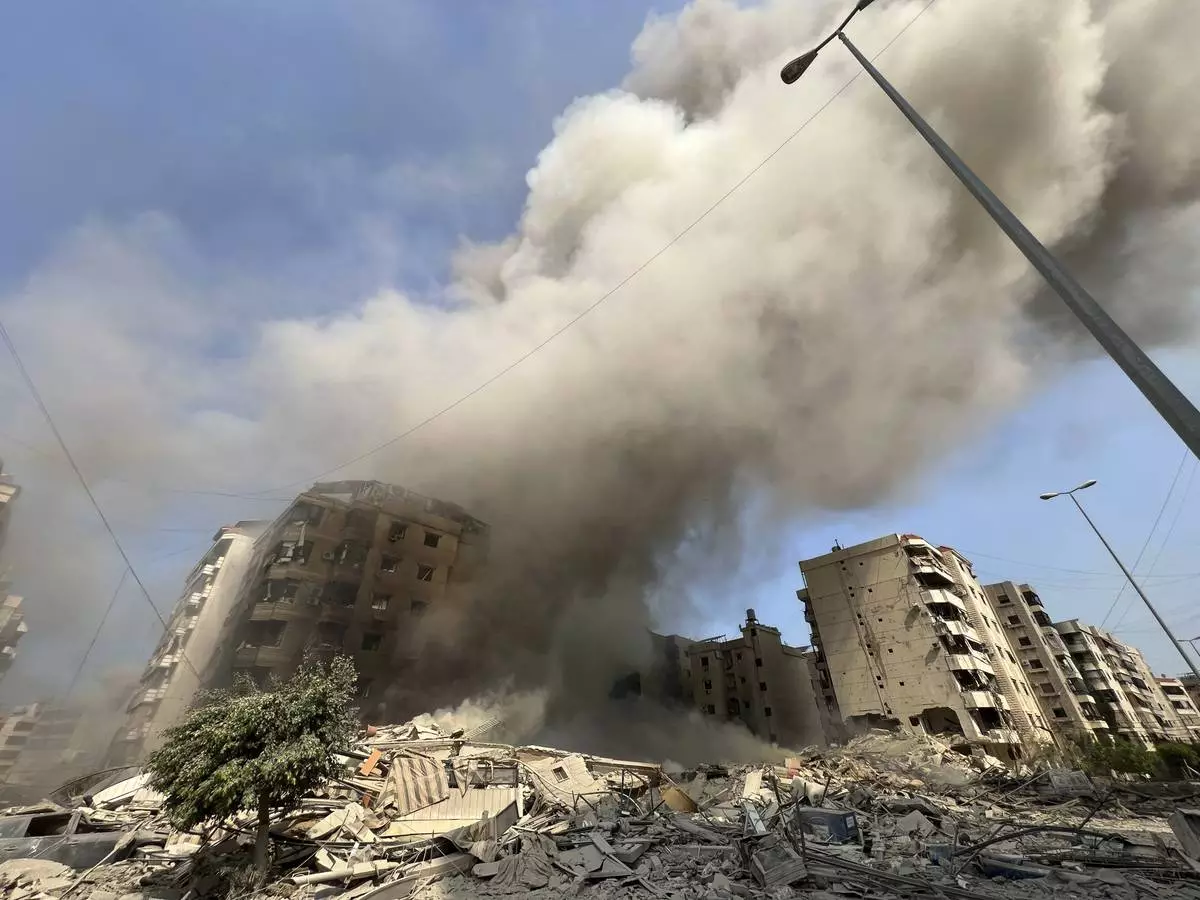
Smoke rises as a building collapses in Beirut's southern suburbs, Saturday, Sept. 28, 2024. (AP Photo/Hussein Malla)
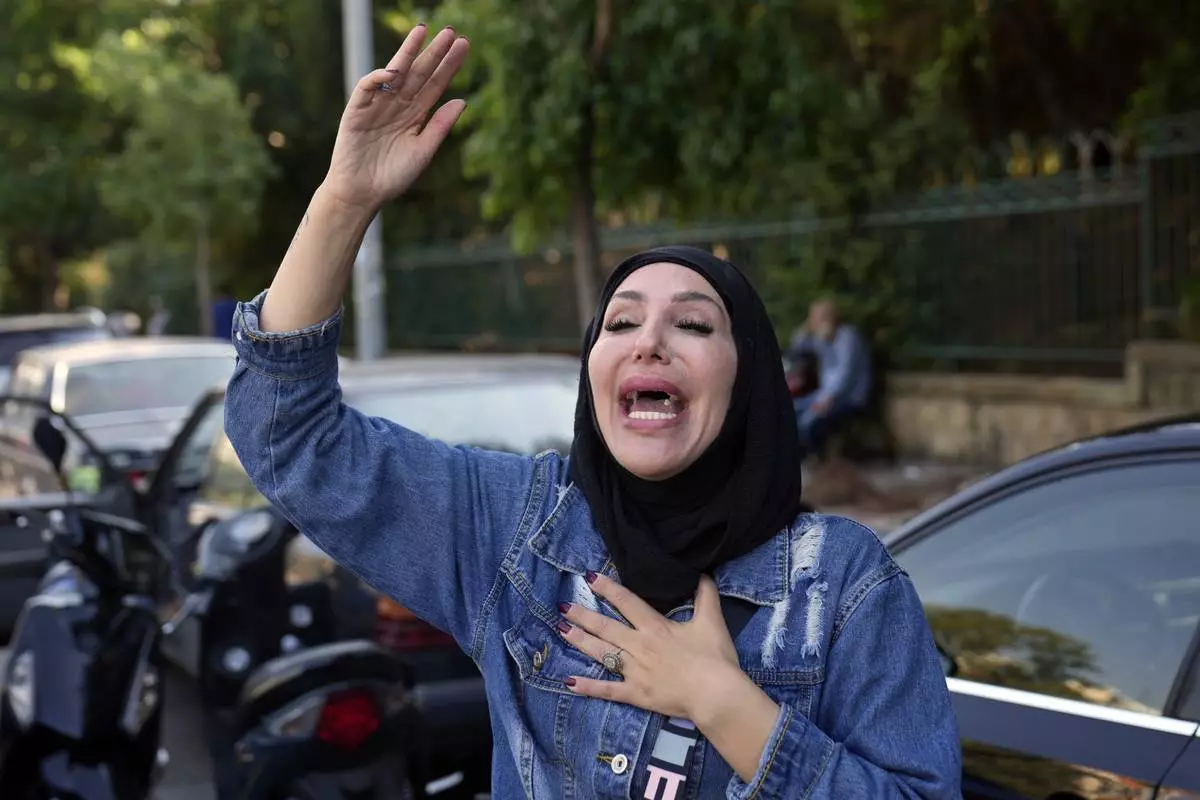
A woman reacts after hearing the news of the death of Hezbollah leader Hassan Nasrallah in Beirut, Saturday, Sept. 28, 2024. (AP Photo/Hussein Malla)
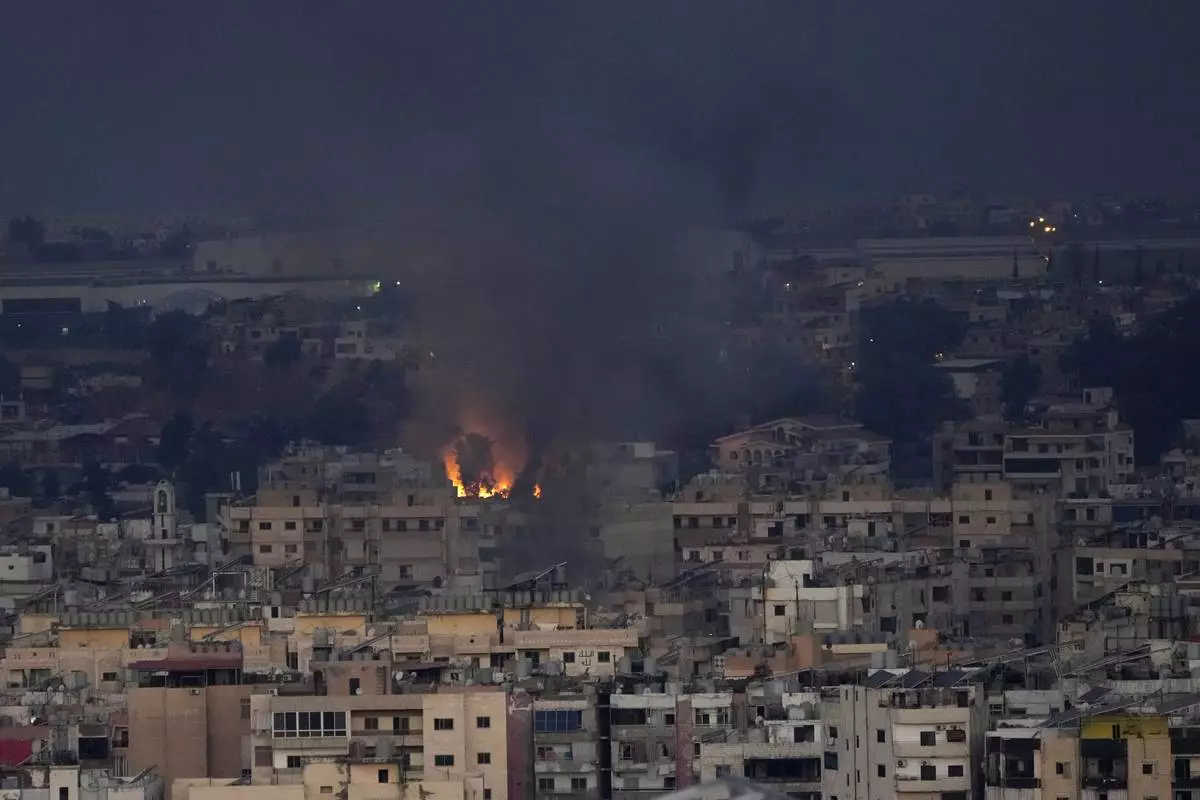
Flame and smoke rise from Israeli airstrikes hit a residential area that is a Hezbollah stronghold, in the southern suburbs of Beirut, Lebanon, Saturday, Sept. 28, 2024. (AP Photo/Hussein Malla)
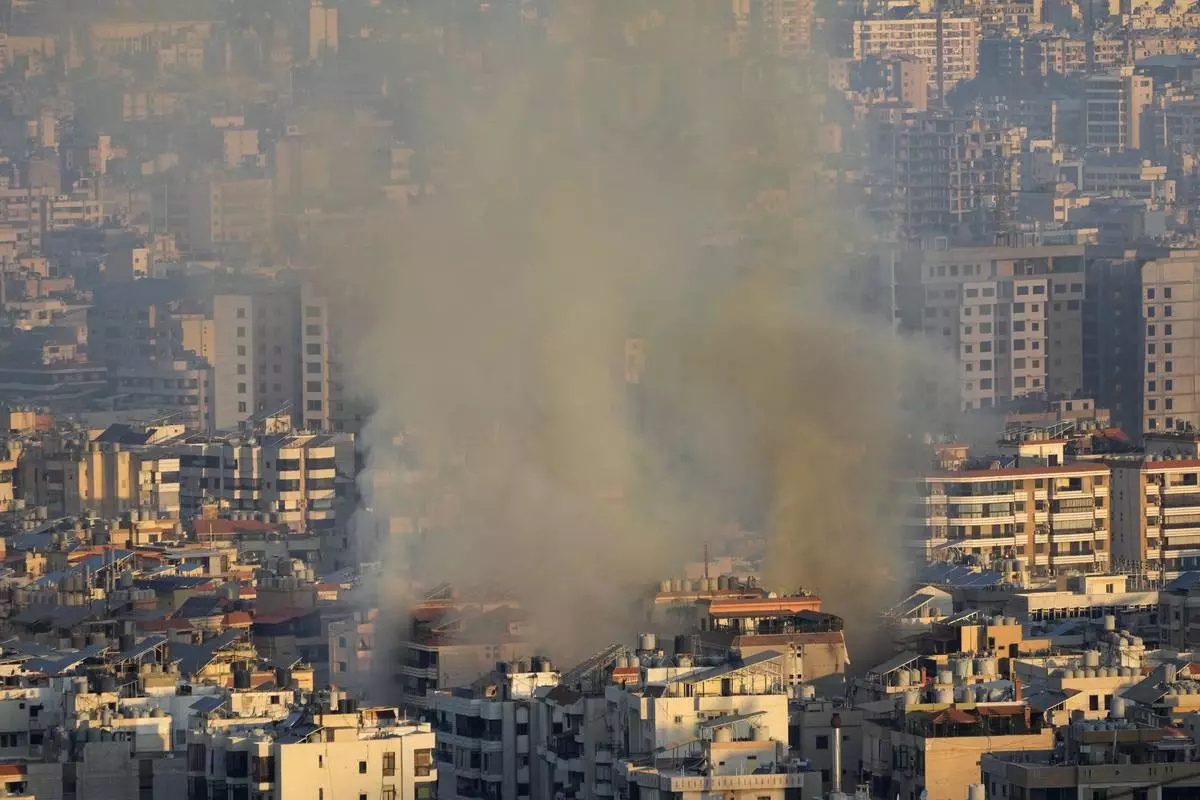
Smoke rises from an Israeli airstrike in the southern suburbs of Beirut, Lebanon, Saturday, Sept. 28, 2024. (AP Photo/Hussein Malla)
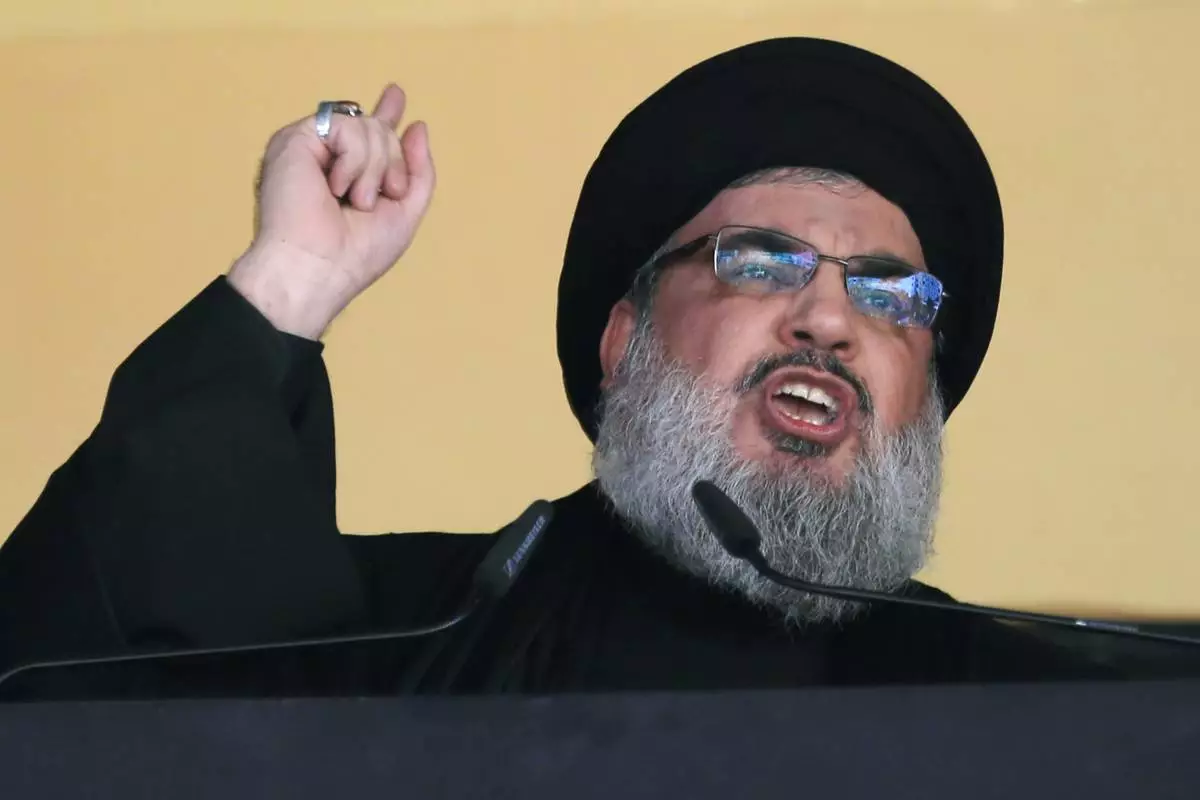
FILE - In this Oct. 24, 2015 file photo, Hezbollah leader Sheik Hassan Nasrallah addresses a crowd during the holy day of Ashoura, in a southern suburb of Beirut, Lebanon. (AP Photo/Hassan Ammar, File)
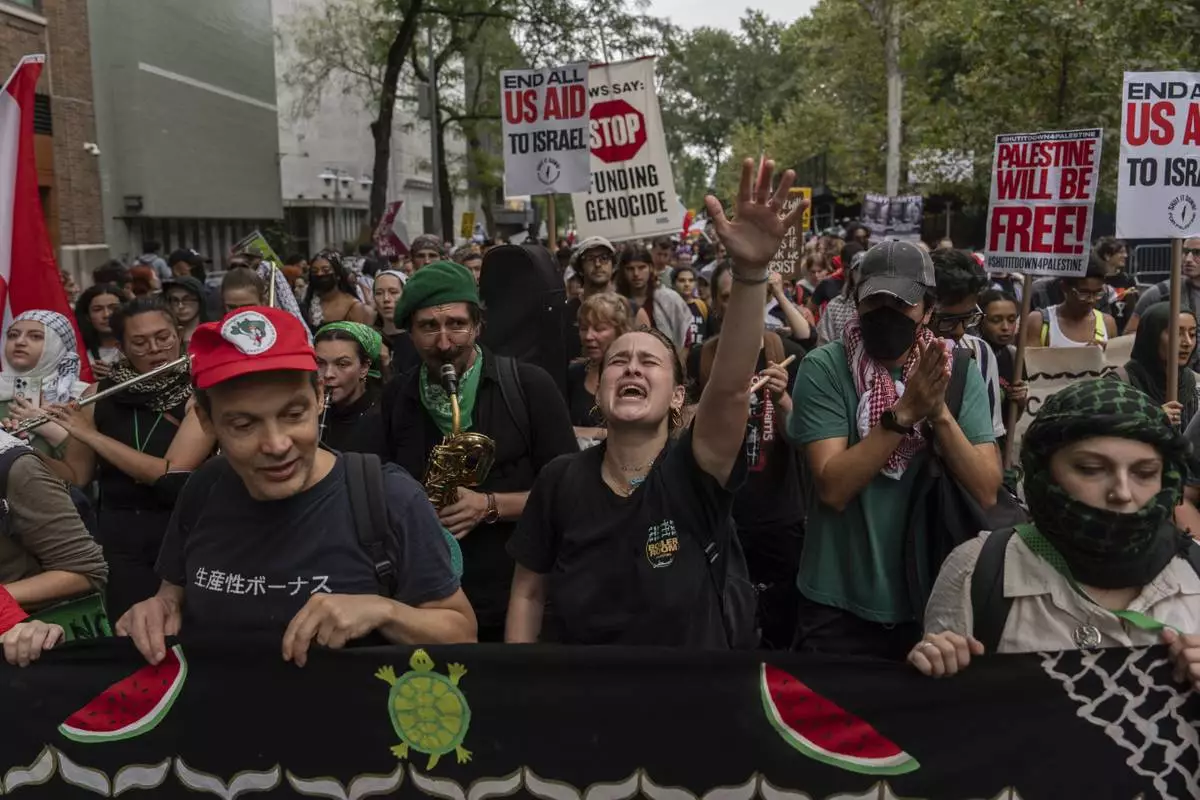
Palestinian supporters march near the United Nations headquarters at a protest against Israeli Prime Minister Benjamin Netanyahu during the 79th session of the UN General Assembly, Thursday, Sept. 26, 2024, in New York. (AP Photo/Julia Demaree Nikhinson)
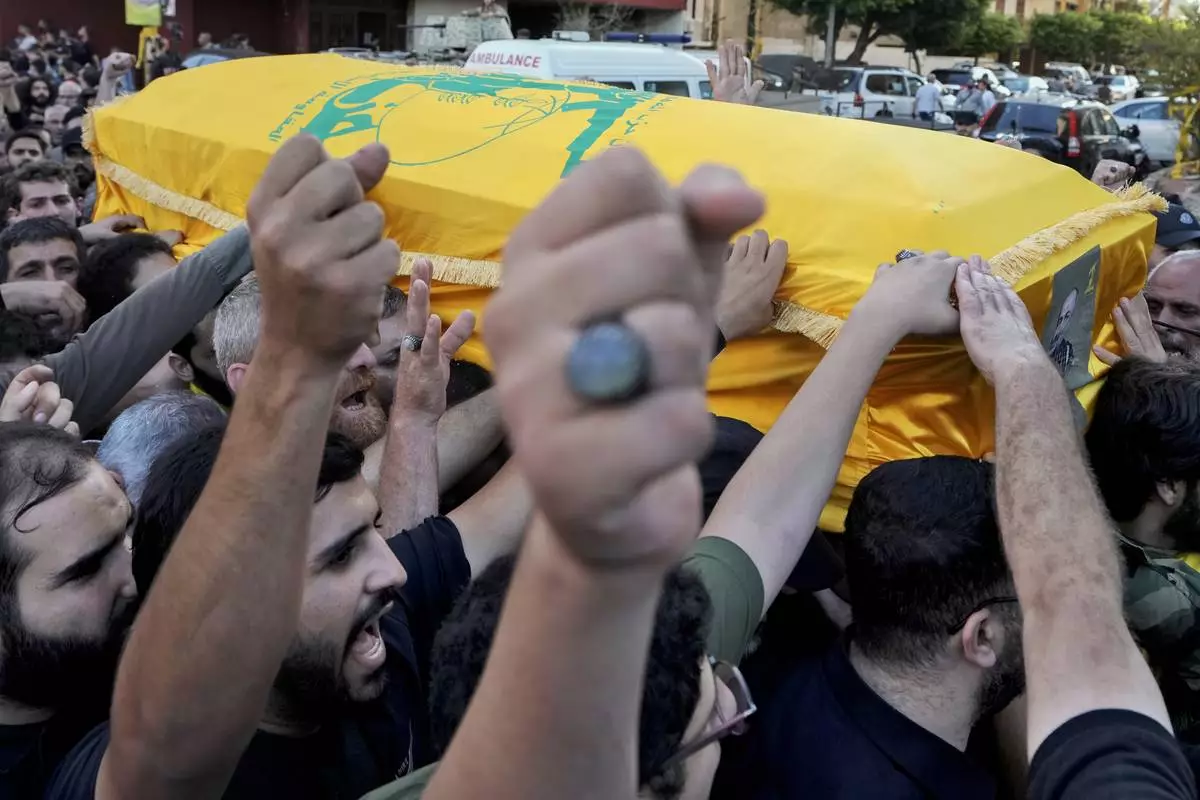
Mourners chant slogans as they carry the coffin of Hezbollah drone commander, Mohammed Hussein Surour, during his funeral procession in Beirut's southern suburbs, Friday, Sept. 27, 2024. (AP Photo/Bilal Hussein)
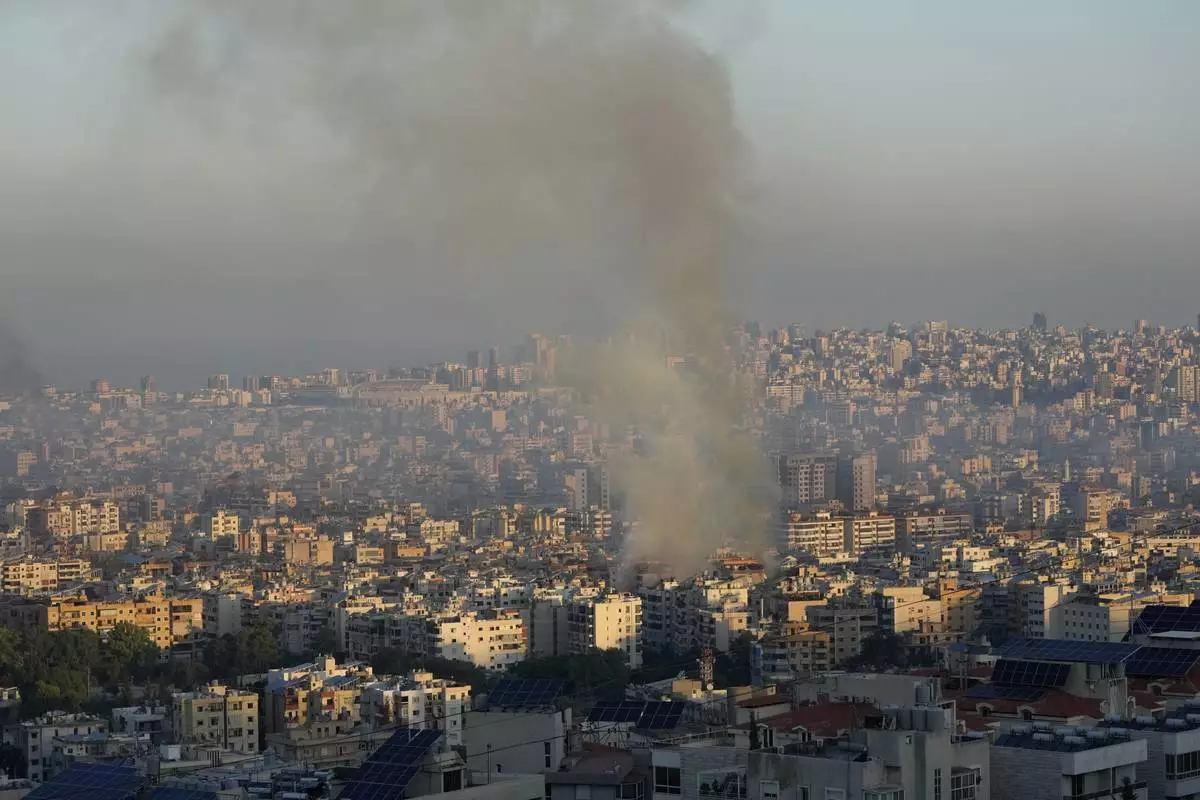
Smoke rises from an Israeli airstrike in the southern suburbs of Beirut, Lebanon, Saturday, Sept. 28, 2024. AP Photo/Hussein Malla)
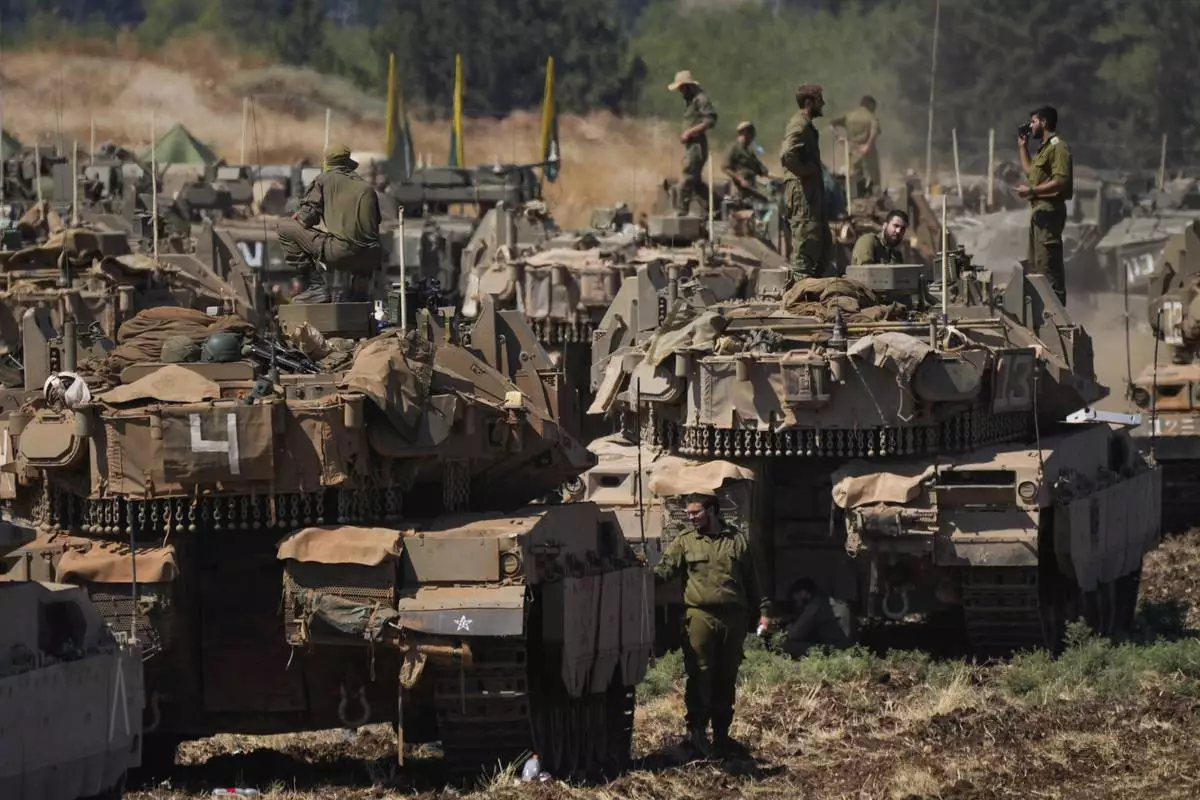
Israeli soldiers work on tanks in northern Israel on Friday, Sept. 27, 2024. (AP Photo/Baz Ratner)
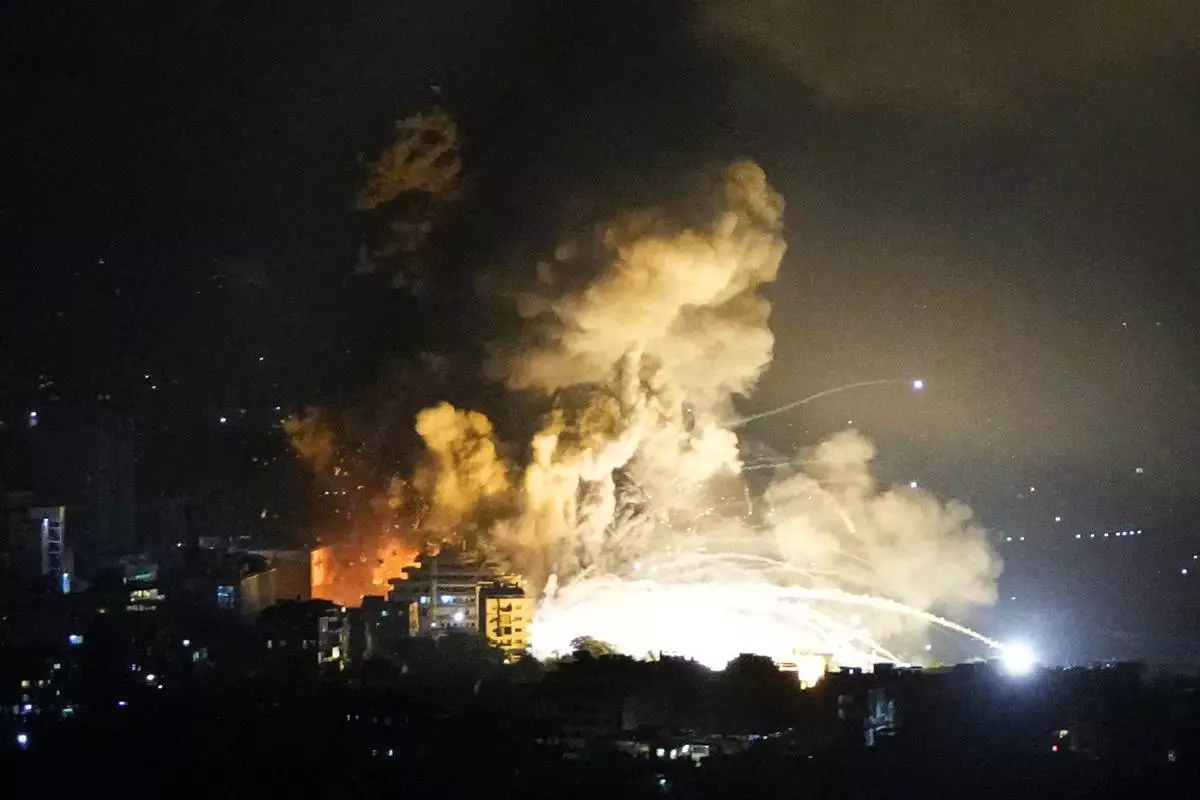
Smoke rises from Israeli airstrikes in Beirut's southern suburbs, Lebanon, Saturday, Sept. 28, 2024. (AP Photo/Hassan Ammar)
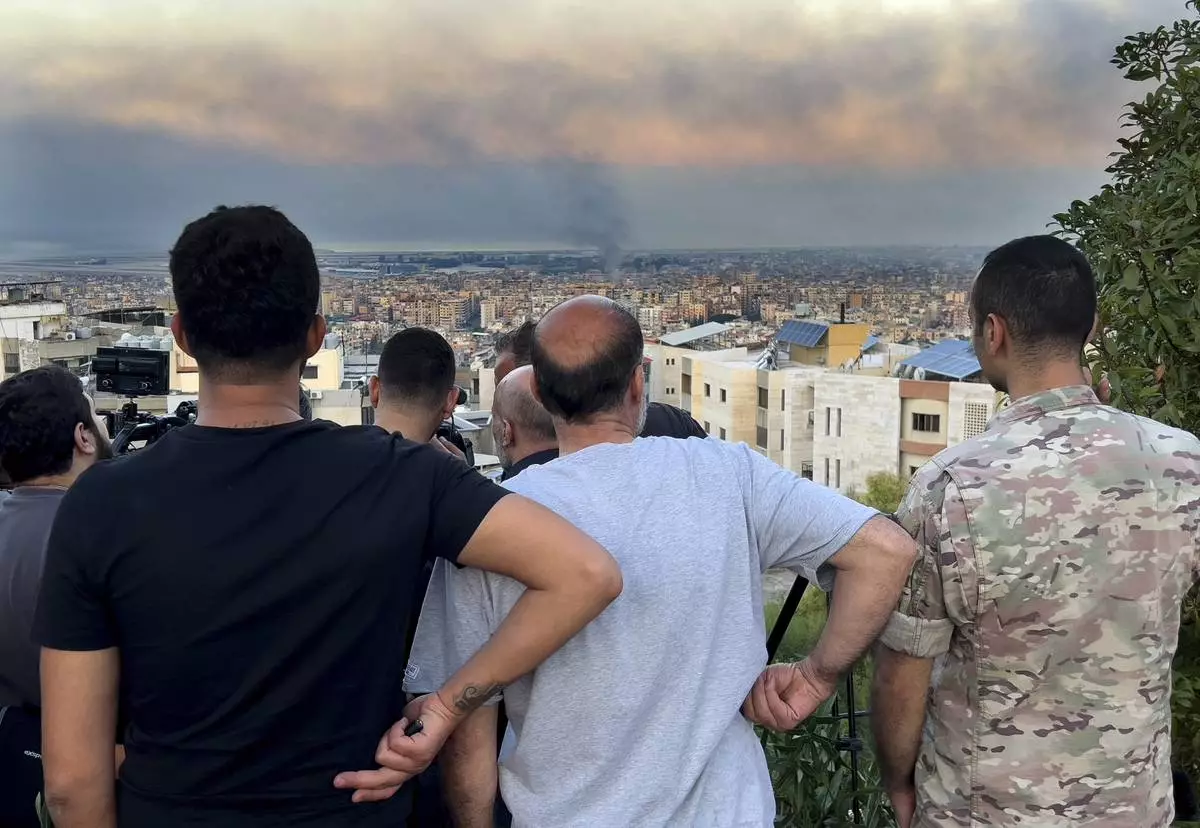
Lebanese citizens watch smoke rise from Israeli airstrikes in the southern suburbs of Beirut, Lebanon, Saturday, Sept. 28, 2024. (AP Photo/Hussein Malla)
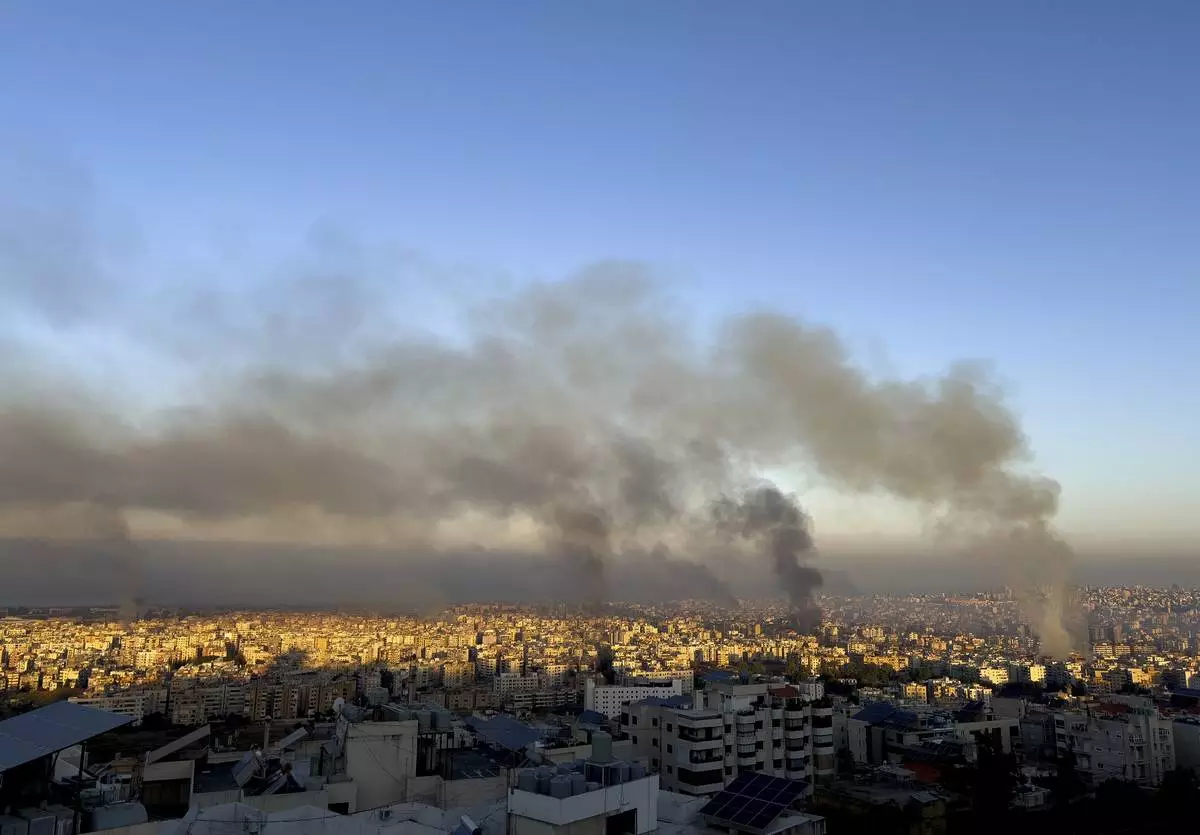
Smoke rises from Israeli airstrikes in the southern suburbs of Beirut, Lebanon, Saturday, Sept. 28, 2024. (AP Photo/Hussein Malla)




